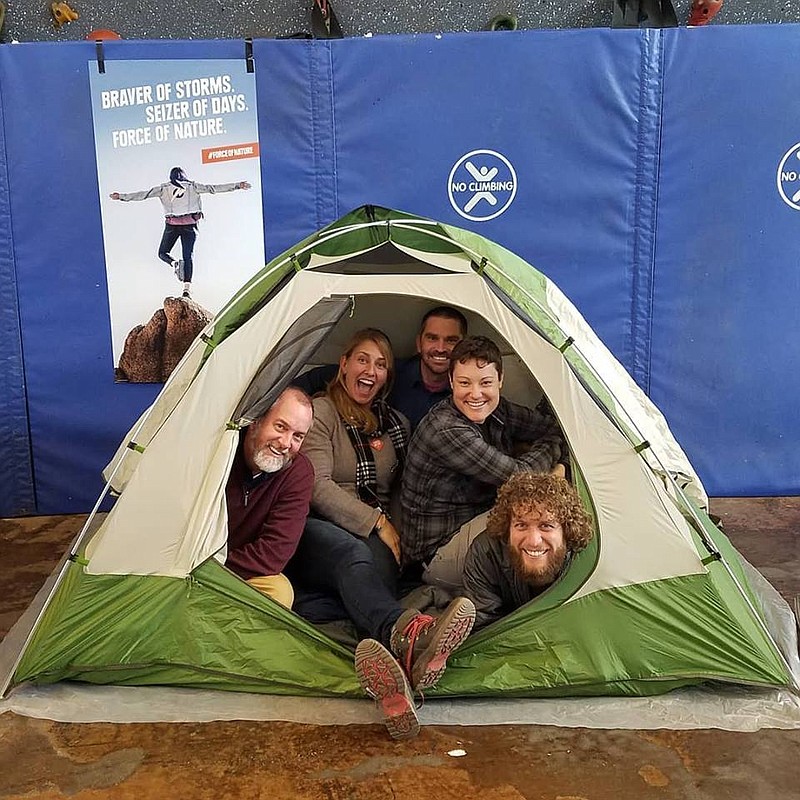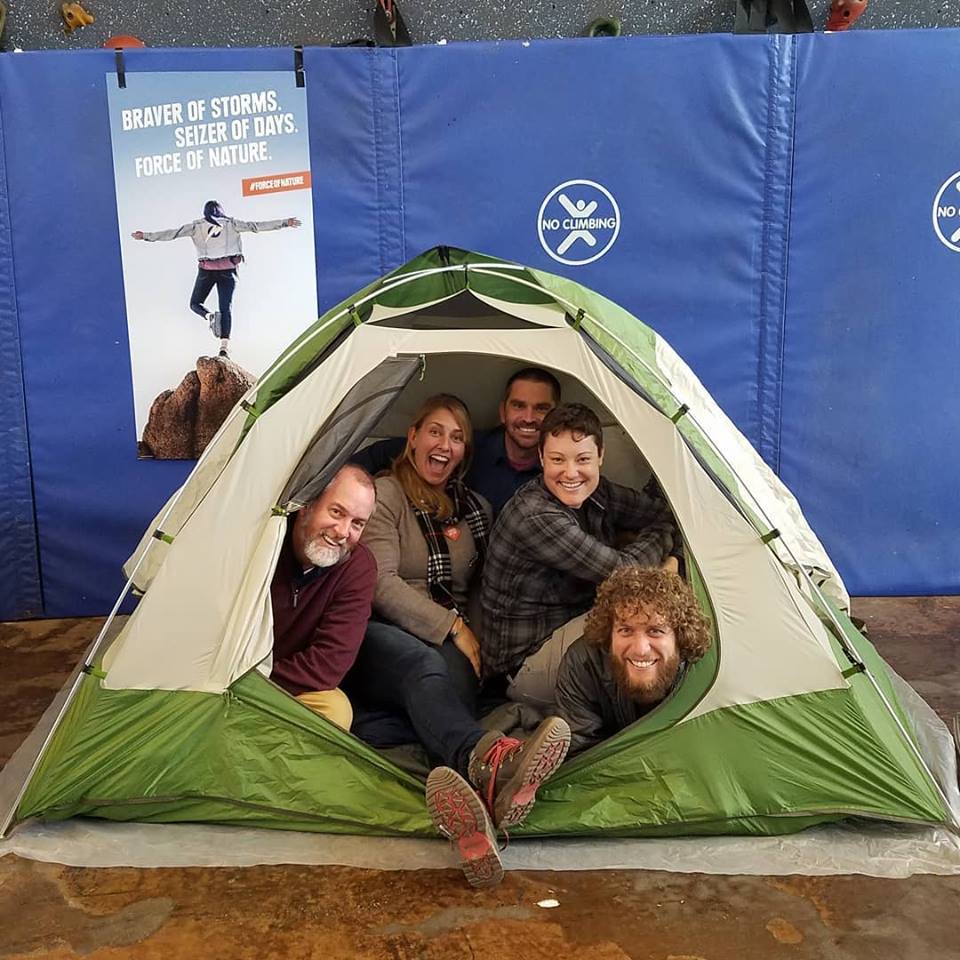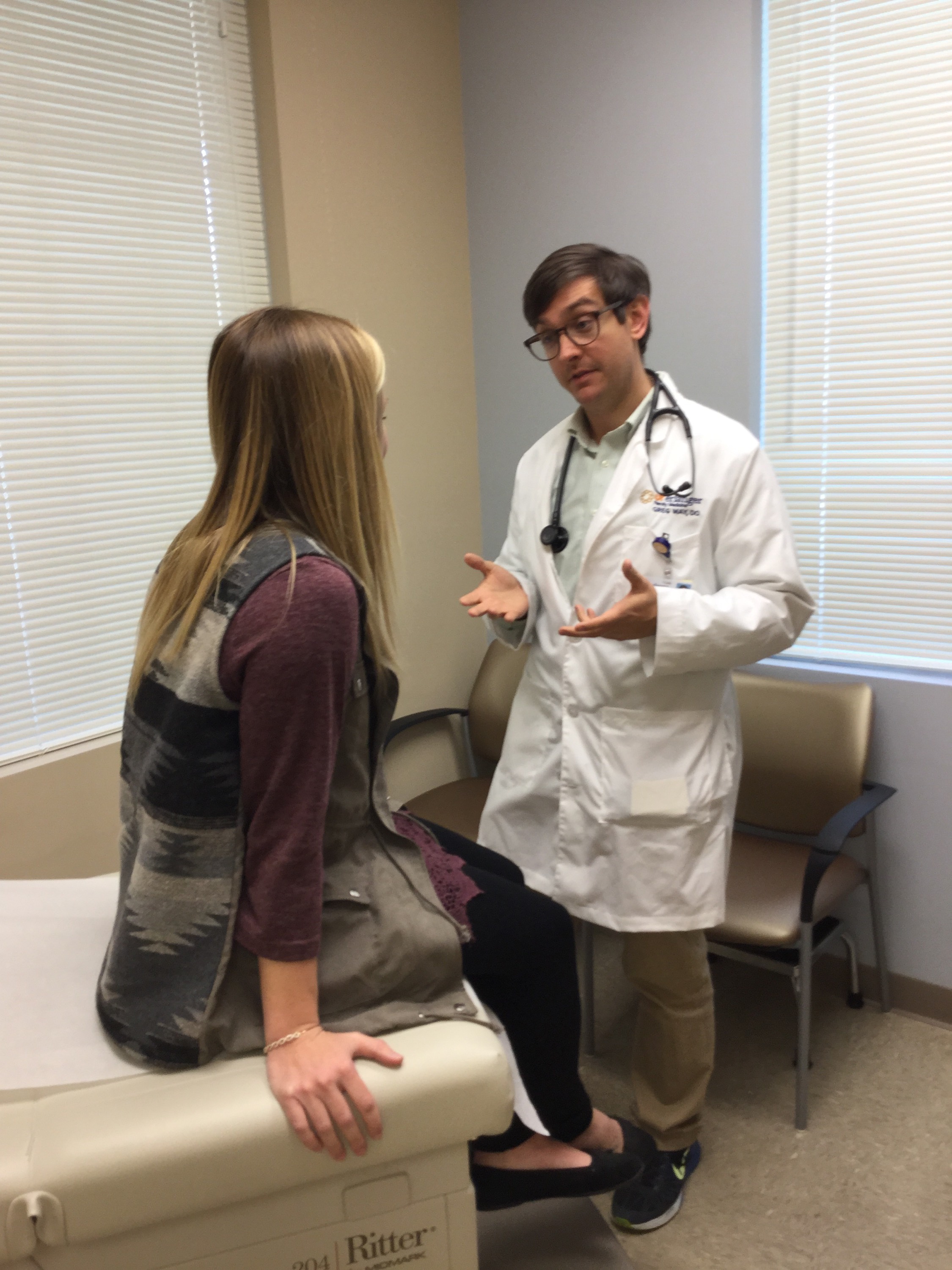If you go
› What: Outdoor Chattanooga’s Winter Workshops› When: 6 to 7:30 p.m. on Thursdays Jan. 18 - March 1› Where: Outdoor Chattanooga in Coolidge Park, 200 River St.
Maybe you wouldn't expect to become dehydrated going for a run or completing a fitness routine outside in the winter. It's too cold. You're not sweating.
You'd be wrong.
Moisture loss isn't as noticeable in the winter because people don't sweat nearly as much as they would during the summer months. But breathing dry winter air increases moisture loss through exhaling water vapor. So performing even normal, everyday activities during the winter can lead to mild dehydration.
Wintertime dehydration doesn't happen often in this area, experts say, but it's possible, and when it does most people don't realize it because the obvious signs of dehydration in summer aren't as apparent.
More likely, dehydration will accompany the flu, though symptoms of influenza could be alleviated if people drank more water, says Dr. Greg May, a family medicine and primary-care doctor with UT Erlanger Primary Care on Lookout Mountain.
"A lot of the worst symptoms of the flu are because of dehydration," he says. "That's the fatigue, the body ache, the headache, the dizziness."
The color of a person's urine is a good indicator of the level of hydration, he says. Ideally urine is clear, but a darker yellow is an early sign of dehydration. Fatigue and dizziness are the later signs.
But people expect to feel bad when they have a bug, not when they're working out. For them, there may be no obvious signs of dehydration, such as getting thirsty or sweating, according to the experts.
"People tend to forget to remain well-hydrated during the colder months," says Jill Culora, vice president of communications for the International Bottled Water Association. "The cold winter air is much drier than the humid air of summer, and it can have significant effects on the body.
"In winter, people are less likely to feel thirsty, so they have to be mindful to regularly consume water to stay well-hydrated throughout the day."
Even mild dehydration, she says, can affect a person's mood, energy level and mental awareness. Organs, cells and tissues fail to function as they should when the body loses too much water. If dehydration isn't corrected immediately, it could cause shock
It's not just outdoor air that can cause problems. Heating systems can contribute to issues with staying adequately hydrated because they pump houses full of hot, dry air, according to Ohio's Cleveland Clinic.
"Breathing dry air can cause respiratory ailments such as asthma, bronchitis, sinusitis and nosebleeds. Breathing dry air also can cause dehydration, since body fluids are depleted during respiration," says a web post from the medical facility on how to combat the static, itching and irritation of dry winter air.
National Public Radio reports that nighttime hydration also can play a critical role in how well we sleep. Every night while sleeping, a person's body loses up to a pound of weight, all moisture from sweating and breathing out water vapor and carbon dioxide.
The National Sleep Foundation says going to bed even mildly dehydrated can disrupt sleep.
"Dehydration causes your mouth and nasal passages to become dry, setting you up for sleep-disruptive snoring and a parched throat and hoarseness in the morning," according to a post at sleepfoundation.org. "And a lack of pre-bed fluids can also lead to nocturnal leg cramps that may keep you awake. In addition to the frustration of fragmented sleep, being dehydrated during the night can compromise your alertness, energy and cognitive performance the following day."
Outdoor Chattanooga will cover hydration and other topics in a free workshop series starting this month. The indoor workshops start Jan. 18 and run every Thursday from 6 to 7:30 p.m. through March 1.
"Obviously it's always important to consume water," says Outdoor Chattanooga customer service representative Sunshine Loveless. "We're made up of water. But I don't think we realize we're sweating in the wintertime because (sweat) evaporates more quickly with the dry air."
The body, which is about 70 percent water, loses about 10 cups of water a day, and that fluid needs to be replaced, according to the website stayhealthyandwell.com.
Chattanooga Track Club manager Stacey Malecky says colder temperatures usually keep runners from sweating as much on shorter runs, but the club still takes precautions against dehydration for longer distances.
"For our long runs, even in the cold temperature, we still make sure we put out drinks for our runners," says Malecky. "The longer time you're out there, that creates the greater risk."
Like many runners, she takes water with her and sips as she runs. The track club also makes sure water is available on marathon routes no matter the season.
Contact Yolanda Putman at yputman@timesfreepress.com or 423-757-6431.


